Learning and knowledge sharing are fundamental to the LHSS Project. We invite you to search LHSS knowledge products and resources for the latest approaches, insights, and learning in the field of integrated health systems strengthening.
This report synthesizes learning from an in-depth examination of successful MOH efforts that have led to increased health budget execution. It offers a vision of good health budget execution, as well as promising practices in the areas of budget structure and processes and budget accountability.
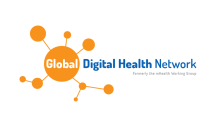
LHSS is proud to present at the Global Digital Health Forum, December 5-7, 2022, in Arlington, Virginia.
This technical guidance document provides a summary of principal findings that highlight those complex factors including a literature review, surveys, resource mapping, case studies including key informant interviews, and the development of a theory of change.
This literature review seeks to identify, analyze, and document successful efforts to integrate Social Determinants of Health into health workforce education, training, and service delivery in low- and middle-income countries.
This case study examines how Côte d’Ivoire’s DREAMS program incorporates Social Determinants of Health elements into HIV service delivery, as well as the related processes and key lessons learned.
This case study describes and analyzes the Eswatini Nursing Council's efforts to strengthen the competence of nursing graduates to address the population’s health needs by introducing entry-to-practice competencies as the basis for a national licensing examination, and for incorporating Social Determinants of Health into these competencies.
This case study describes and analyzes Patan Academy of Health Science’s efforts and contributes to the knowledge base on how to maximize the positive impact of integrating Social Determinants of Health into the education and training of health workers.
This Year 3 Quarter 3 Report (April-June 2022) was prepared for USAID and provides a progress update for all annual work plan activities.
The case study in Senegal focused on practical experiences and lessons learned when expanding financial protection to socially excluded and vulnerable groups.
The case study shows the literature and previous work on health equity to identify promising approaches and strategies from Senegal’s experience to ensure more equitable financial protection, particularly for underserved and socially excluded populations.
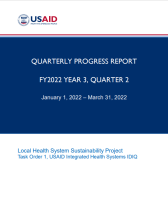
This Year 3 Quarter 2 Report (Jan-Mar 2022) was prepared for USAID and provides a progress update for all annual work plan activities.
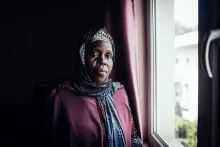
How can countries make progress towards good health budget execution? In this latest blog in our budget execution series, ministry of health practitioners from eight countries offer lessons based on their own experiences and shared learning.
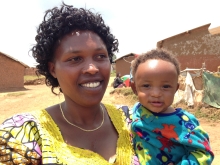
Through an LHSS-Joint Learning Network learning exchange, health practitioners from seven countries are sharing successful experiences and promising practices to institutionalize explicit national priority-setting processes for health. The goal? To help countries set equitable national health priorities and ensure that these priorities are reflected in national health plans and budgets.

Both Ghana and Bangladesh have implemented health budget accountability mechanisms. Their experiences offer practical lessons that other countries can adapt to their own budget execution needs.
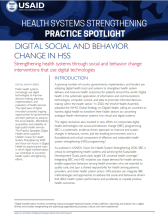
This brief explores ways in which digital tools and systems can be used successfully and responsibly to advance SBC interventions in support of health system strengthening, and provides recommendations for future programming and areas of research.
